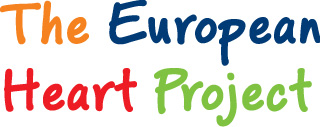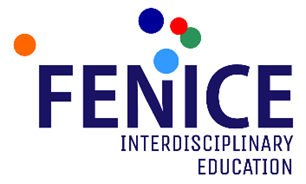
In the European Heart Project, teaching materials were developed for use in secondary education, can be implemented in social learning, in history and ethics lessons, in political education and in interdisciplinary projects. This project will now be successfully completed in August 2023.
Through the European Heart Project (09/2020 – 08/2023), students learn to develop an empathic relationship with themselves and others using an emotional-empathic approach, while gaining a critical distance from emotionalizing rhetoric.
With the finalization of the project, all our products are collected on the training platform (https://training.european-heart.eu/) in a virtual learning environment for the long term. These results can also be used via a mobile app (for Android: European Heart). All interested persons will find in this online environment a variety of materials dealing with the topics of basic needs, empathy and democracy. Formats offered include all booklets and workbooks, the Active Citizen Team Game, interactive PowerPoint presentations and an online presentation for classroom work, as well as fun opportunities for repetition in form of quizzes. All materials are available in the languages English, German, French and Greek and include:
- The ”Needs and strategies Toolkit for students” aged 13 to 16 familiarize young people with the Five Basic Needs according to William Glasser and show that all people have the same basic needs (download).
- The workbooks “Learning from History” (LINK) were developed by history teachers. Five different historical episodes invite to experience history and to slip into the role of acting persons.
- Four of the historical episodes are additionally brought to life by short movies that were developed and produced by students. These short movies can be used in combination to the episodes or independently of the workbook.
- The Active Citizen Team Game (LINK) enables the development of solutions for important questions of our future on four levels. In addition, there are game boards and cards for the ACT game as well as a quick guide for students and a handbook for teachers to print out.
- The Guide for teachers (LINK) provides a compact overview of the basic concepts of the project, a self-reflection for teachers on their own needs in the teaching profession, descriptions of all materials, a brochure on democratic school culture and further practical applications of the European Heart materials.
In the last months, the international multiplier seminar in Vienna (AT) and two further multiplier seminars (FR/Reunion and GR) took place to promote the project materials. Further dissemination activities on our project results and products in face-to-face and digital formats will continue into the fall.
All materials have been developed for use in secondary schools I + II and are intended to make history tangible, enable emotional learning from history, and motivate active participation in society.
We look forward to frequent use of all our materials and feedback on their use in your school! More information can be found at https://european-heart.eu/ (Project Website) and https://training.european-heart.eu/ (Training Platform).

